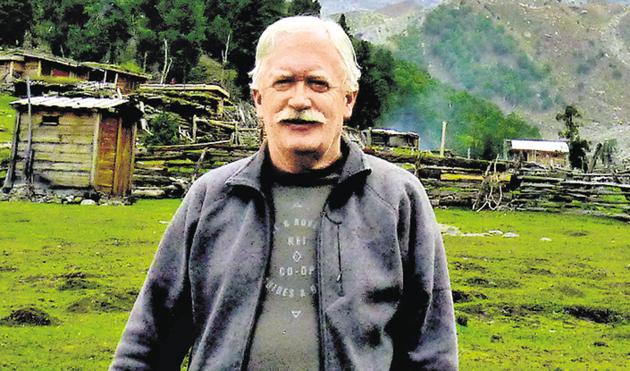A retelling of Jungle Book without the colonial baggage
Stephen Alter sets the Rudyard Kipling classic in a newly independent India, and has Mowgli, renamed Daniel, working at MIT.
There have been many retellings of Rudyard Kipling’s Jungle Book — from Disney to Doordarshan to Robert Heinlein’s Hugo Award-winning Stranger in a Strange Land, where a boy named Valentine is raised by Martians.

In Feral Dreams: Mowgli & His Mothers (2020, Aleph), Stephen Alter sets the tale of Mowgli — the boy raised by wolves (and a bear) in the jungles — in a newly independent India. Mowgli is now Daniel, reared in the jungle, adopted by missionaries and now working as a lab supervisor at MIT. “It’s always interesting to reimagine a character that someone else has created, because you can tease a reader’s expectations,” says the Mussoorie-born Alter. Excerpts from a conversation:
How have readers responded to Feral Dreams?
So far, most of the responses I have received have been positive, though I have a sense that it isn’t the book that many readers expected. Parts of the story are a retelling of The Jungle Books, though the forests I describe are much more limited and hemmed in by human settlements. The animals are restricted to a wildlife sanctuary, rather than having unlimited space to roam in the wild. The character, Daniel, whose adoptive mother gives him the pet name Mowgli, is very different from the man cub in Kipling’s tale, much more self-aware and troubled by his past.
Why did you pick this story to retell?
The idea of a child being raised in the wild is a very old myth that goes back to long before Kipling’s stories. It is a fascinating idea because it touches on our “animal nature”. Human beings like to think of themselves as being separate from other species but there is also a part of our psyches that is linked to our origins as forest-dwelling primates. Of course, I didn’t think about this when I first read the Mowgli stories as a boy. I simply enjoyed the adventures and the setting of the jungle, which is a world that has always fascinated me. I suppose Feral Dreams could be described as a “new” Jungle Book but I prefer to think of it as an ancient tale retold in modern times.
Would you say this book is the work of a fan?
The expression “fan fiction” isn’t something I was familiar with until this book was published, and I had to look it up to find out what it meant. Nevertheless, I suppose Feral Dreams fits into that category. At the same time, I wouldn’t describe myself as a fan of Kipling. There are a number of elements in his work that bother me, because of his colonial and racist perspectives. In some ways, this book is an attempt to overturn those prejudices and try to tell Mowgli’s story without all of the colonial baggage.
What is one thing you definitely wanted to rework and alter from the original?
As best I could, I have tried to not portray any of the animals as villains, which is the way the tiger and a few other species are depicted in the Kipling and Disney versions. Imposing our sense of good and evil on nature is common to many mythologies and it has often led to the unfortunate demonising of certain creatures. If there are any animals that I have shown to be heroic, it is the elephants because they deserve that recognition, even if I am breaking my own rules about anthropomorphic judgements.
I’ve always been puzzled by the name Mowgli because it’s an unusual name, which I’ve never heard in any other context. Kipling suggests it means “frog”. Even my character, Daniel / Mowgli, recognises that it’s a made-up word. But then again, why not? Stories like these are supposed to be make-believe.
What about the Mowgli story resonates most with you?
Most novels, either directly or indirectly, wrestle with the question: “What makes us human?”. Often, that question implies a level of superiority over other creatures (and other human beings). That’s why Mowgli’s story is so intriguing, because it allows us to see a human child from the perspective of other species. The elephant matriarch in my story has a unique point of view because she used to be a captive animal, who lived among human beings for many years, before returning to the wild. For that reason, she understands Mowgli’s species better than he does himself.




